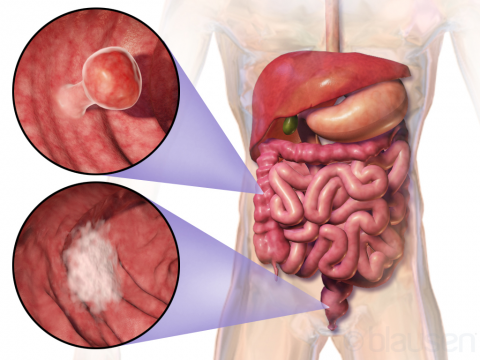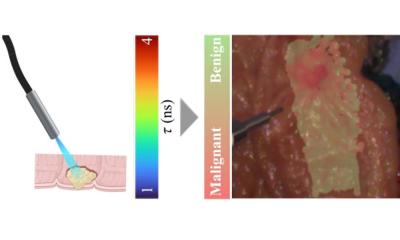News • Growing danger
Bowel cancer rising among young adults in Europe
The rate of bowel cancer – also known as colorectal cancer or CRC – is rising among adults aged 20-49 in Europe, suggests new research.
Rates rose most steeply among the youngest age group (20-29 years), and the authors warn that if the trend continues, screening guidelines may need to be reconsidered. Rates tend to be lower among people over 50, but the opposite is true among younger adults in North America, Australia and China, say the researchers. And in the US, the increase in new cases among people aged 20-40 has prompted The American Cancer Society to recommend lowering the age at which to start screening to 45.
Recommended article

Article • Colon cancer
Revolution and evolution in oncology
Dr Georg Ralle, General Secretary of the association ‘Network against Colon Cancer’ since 2012 as well as moderator of the symposium ‘The New Measurement of Oncology’, hosted by the National Centre for Tumour Diseases Heidelberg (NCT), clearly voices his dissatisfaction with the German ‘wait it out mentality’. He sharply criticised the Federal Joint Committee (G-BA) and here also…
Over the past decade, the number of new cases of bowel cancer has risen in most European countries, but the situation on rates among younger adults is unclear. So to shed some light on European trends, a team of researchers analysed data from national and regional cancer registries on the number of new cases and deaths related to bowel cancer between 1990 and 2016. They used data from 143.7 million people aged 20-49 years from 20 countries, including Germany, Sweden, the UK and the Netherlands.

Between 1990 and 2016, a total of 187,918 people were diagnosed with bowel cancer and there was a steeper rise in the number of new cases in more recent years. Among 20-29 year olds, bowel cancer incidence rose from 0.8 to 2.3 cases per 100,000 people between 1990 and 2016, and the sharpest rise was between 2004 and 2016 at 7.9% per year. For the 30-39 year olds group, the incidence increased less steeply than the younger age group, at an average of 4.9% per year from 2005 to 2016. Finally, among the 40-49 years age group, the bowel cancer rates fell by 0.8% between 1990-2004, but then increased slightly by 1.6% per year from 2004 to 2016.
New cases of bowel cancer rose significantly among people aged 20-39 in 12 countries, namely, Belgium, Germany, the Netherlands, the UK, Norway, Sweden, Finland, Ireland, France, Denmark, Czech Republic and Poland. But Italy showed a decrease in the number of cases. In eight countries – the UK, Greenland, Sweden, Slovenia, Germany, Finland, Denmark and the Netherlands – the number of cases rose significantly among 40-49 year olds, but rates fell significantly in the Czech Republic in more recent years (1997-2015).
The number of deaths from bowel cancer did not significantly change among the youngest adults (20-29 years), but fell by 1.1% per year between 1990 and 2016 in the 30-39 age group and by 2.4% per year between 1990 and 2009 among those aged 40-49 years.
This is an observational study, and as such, cannot establish cause. Moreover, the authors highlight some limitations, including the fact that the quality of data varied between countries and in some cases was only available for a limited number of regions. Several factors may be behind these trends, including the rise in obesity, and lifestyle factors such as lack of physical activity, alcohol intake and smoking, they write.
Bowel cancer in young adults is “in part due to hereditary cancer syndromes, but most cases are sporadic,” they add. They say that it is too early to use their findings to support lowering the screening age to 45 in Europe, but if the trend continues, screening guidelines may need to be reconsidered. They conclude: “Until the underlying cause of this trend is identified, it would be [a good idea] to raise clinicians' awareness and identify factors possibly associated with this trend.”
Source: BMJ
17.05.2019











